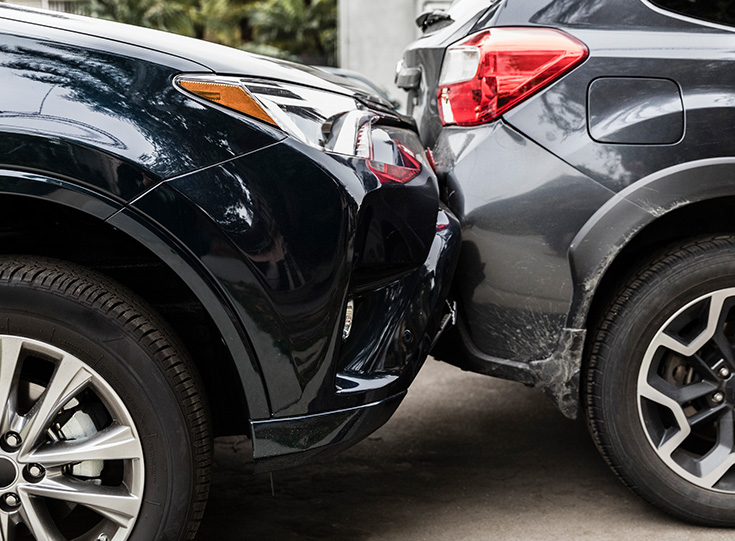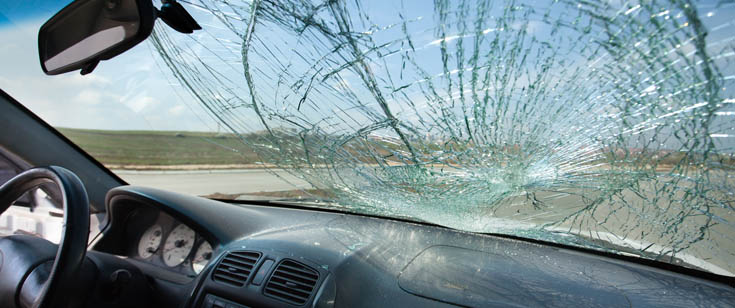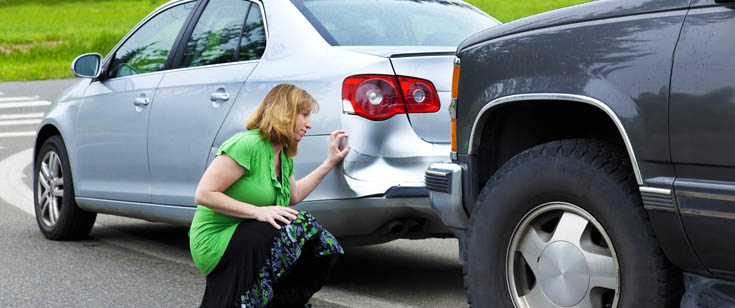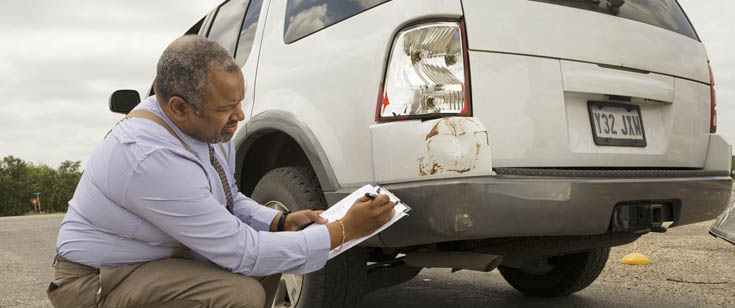Auto insurance
Collision insurance

Collision insurance is a type of auto insurance coverage that pays for damage to your vehicle from an accidental collision with another car or object. Your insurance company pays for damages, the cost of repairs (less your deductible), or the actual cash value of your car, whichever is less, regardless of who is at fault.
What does collision insurance cover?
Some of the scenarios your collision insurance covers are:
- Accidents involving another vehicle
- You hit an object such as a tree or parking meter while driving your car
- Someone hits your parked vehicle
Accidental damage to your vehicle is considered under collision coverage regardless of who is at fault.
What isn't covered by collision insurance?
- Damage caused by hail, fire or flood
- Damage caused by natural disasters
- Collision with animals
- Medical expenses due to an accident
- Damage caused to other people's property
- Theft
- Vandalism
- When your windshield is damaged by road debris
- Normal wear and tear, engine failure or other mechanical problems
Should I get collision coverage?
Collision insurance is a good way to protect your car, but there may be times it doesn’t make sense. Collision coverage isn't required by law, so if your vehicle is older or has a value equal or almost equal to your deductible, you may decide not to carry collision coverage. If you're financing or leasing your vehicle, the lienholder or lessor will likely require collision coverage.
What options do I have for collision coverage deductibles?
Your deductible is how much you'll pay before your collision coverage applies to your loss. Deductibles can vary depending on your location and circumstances. Choosing a higher deductible will lower your monthly premiums, but keep in mind that if you have an accident, you'll have to cover the deductible out of pocket before your insurance starts paying for the damages.
Collision coverage with car insurance through AAA
What is the difference between collision coverage and comprehensive coverage?
The difference between collision coverage and comprehensive coverage lies in the types of incidents they protect against. Collision coverage specifically covers damages to your vehicle resulting from an accidental collision with another car or object, while comprehensive coverage covers damages from non-collision events such as theft, fire, vandalism, natural disasters, hitting an animal, or having an object fall on your car. Both types of coverage exclude normal wear and tear and mechanical problems. Collision coverage is essential when it comes to accidents, while comprehensive coverage provides broader protection for various other incidents.
What is the difference between collision coverage and liability coverage?
Collision coverage specifically focuses on covering damages to your own vehicle resulting from an accidental collision with another car or object, regardless of who is at fault. It does not cover normal wear and tear, mechanical problems, or non-collision incidents.
On the other hand, liability coverage is designed to cover damages or injuries that you may cause to other drivers or their property while operating your vehicle. It is often required by law and is sold in two parts: bodily injury liability and property damage liability. Bodily injury liability covers the cost of injuries to others if you are found legally liable for an accident, while property damage liability covers the cost of damage to someone else's property that you caused while driving.
In short, collision coverage protects your own vehicle in case of an accident, while liability coverage protects you financially from damages or injuries you may cause to others while driving.
For more information on different types of car insurance coverage, check out our page on full coverage car insurance.
Examples of collision insurance
For the following scenarios, we'll assume you drive a newer vehicle with an actual cash value of $20,000. Regardless of the amount of damages, the most your insurance will pay is the actual cash value of your vehicle.
Scenario 1
You're in an accident on the freeway with another driver and are found at fault. Repairs to your car will cost $10,000, and you have collision coverage with a $500 deductible. You pay $500 and your collision insurance pays $9,500 to repair your car. Repairs to the other vehicle involved in the accident would be covered by your liability coverage.
Scenario 2
You take a corner too sharply and hit the guard post on your way out of a parking garage. It costs $10,000 to repair your car, and you have collision coverage with a $500 deductible. You pay $500 for repairs, and your insurance covers the remaining $9,500.
Working with your AAA insurance agent to discuss your options is a good way to make sure all your insurance needs are covered. You can also sign in to your online AAA account to review your policies and coverage.
More types of insurance coverage

If you're hit by an uninsured motorist and you have uninsured collision coverage, your insurance company will pay for the damage to your car or its actual cash value (whichever is less) up to $3,500. This coverage only applies if you're legally entitled to recover damages from another party and certain other conditions are met. For more information, get a quote or call an agent.
Uninsured collision coverage is only available in California.

Comprehensive insurance pays for the damage to your vehicle that's not caused by a collision or rollover.

Medical payments coverage pays for medical expenses if you and/or your passengers are injured in an accident, regardless of who's at fault.

Uninsured motorist property damage coverage availability and requirements may differ by states.

With ever-increasing medical costs and damage to expensive property, the minimum coverage limits required by law may not be enough.
Your policies & coverage

Log in to your account to view and manage your auto policy details, review your coverage amounts, and enroll in paperless billing.

AAA agents are available to help you file a claim, and to answer questions about your coverage, limits, or deductibles.
